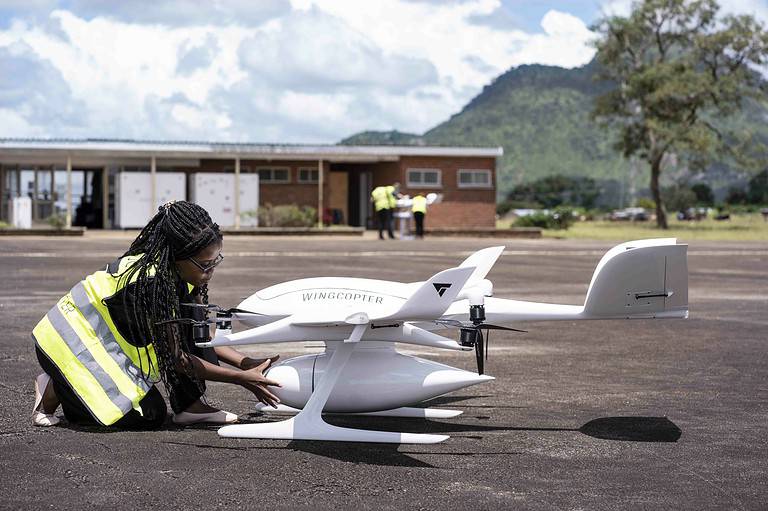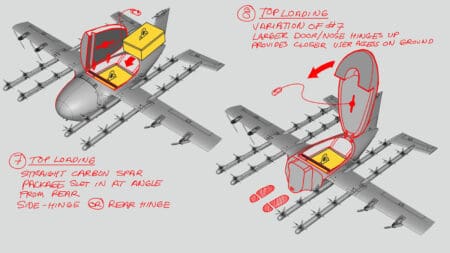Wingcopter, a German startup specializing in delivery drones for remote areas, has secured €40 million (approximately $44 million) in financing from the European Investment Bank. The company will use the funds to expand its hardware line and develop a new business in logistics and delivery services using a fleet of its drones.
The funding is a combination of equity and venture loans. It brings Wingcopter’s total raised to €100 million. This includes previous fundraises from financial and strategic backers like REWE, Xplorer Capital, ITOCHU, and Expa.
The investment doubles Wingcopter’s previous valuation, which the company did not disclose. Wingcopter’s delivery drones have already been deployed in small-scale missions. One example is that of delivering medicine to hard-to-reach areas in Malawi in partnership with UNICEF.
What the drones are intended to do
The company plans to expand these services to more areas. Partnerships in emerging regions of Africa, Asia, and Latin America are likely. Wingcopter has additional plans to build a hydrogen-powered model with more range.
Apart from its use in deliveries, Wingcopter’s drones have also caught the attention of the German government. Germany approached the company to participate in a fleet of drones sent to Ukraine. With it, they intend to help defend the country against Russia.
Wingcopter declined the offer, as it never wants to use its drones in combat situations. However, the company may explore the possibility of delivering goods to areas affected by conflict once the fighting has ceased.
Looking to compete and collaborate
Wingcopter’s fundraising is pivotal for the vertical take-off and landing (VTOL) space, with other companies such as Zipline and Flytrex also raising substantial funding. However, unlike air taxi businesses, Wingcopter and other delivery drone companies have active deployments that make them attractive to investors.
As part of the European Investment Bank’s mandate to finance promising startups in the region and further its ecological mandates, Wingcopter’s drones reduce traffic and emissions from delivery vehicles and promote the development of clean energy systems, such as its hydrogen-powered model.
The company plans to build its own logistics and delivery backend to manage services and work with fleets and any other device that makes sense for deliveries.
Also read: Wing launches two new delivery drones, Europe will have to do without



















